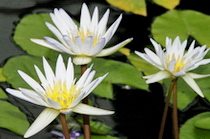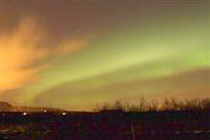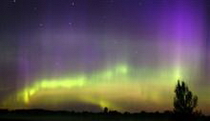At its most basic definition, kingdom theology would be the part of theology that studies the Kingdom of God in all its many different aspects, manifestations and elements. In that sense kingdom theology is a legitimate and beneficial part of theology as a whole. But there are also theological “movements” or beliefs that are sometimes labeled as “kingdom theology,” so one must be careful to understand how the term is being used.
One type of kingdom theology that would be considered within the realm of biblical or orthodox Christian doctrine is what is sometimes referred to as the “already but not yet” view of the kingdom of God which simply means that the “end times” began with the ascension of Christ into heaven. It is also called “inaugurated eschatology” because the life, death and resurrection of Christ are seen as inaugurating, or ushering in, the beginning of the last days. Those who hold this view believe that the Kingdom of God is already here but has not yet been fully consummated.
This type of kingdom theology divides human history into two broad periods of time. First is the “present evil age” which started with the fall of man and will last until the Second Coming of Christ. This time period is marked by sin, sickness, death, disease, war and poverty. In it Satan is seen to be ruling the world and the world’s system as seen in verses like Ephesians 2.2 and 6.12, among many others. Of course we also know from Scripture that Satan’s rule is limited to only what God allows him to do.
The second age is the “age to come” where the kingdom of God rules an age of eternal life, freedom from sin, sickness and suffering. It will be a time of universal peace on earth and God’s absolute sovereign reign over all of creation.
Kingdom theology teaches that both ages are in play today. In other words while Jesus ushered in the Kingdom of God we still suffer from the consequences of living in a fallen world with sin, sickness and disease. So while the Kingdom of God is already here and Christ is already ruling from heaven, the full benefits of the Kingdom have not yet been ushered in. Because the Kingdom of God is still “not yet” here in all of its glory and power, Christians still suffer sickness and death. Although we have eternal life we still live in a world of sin with all the sickness, pain and suffering that brings. Until Christ returns again we will not experience the fullness of the kingdom of God in all aspects and areas. Where the waters start getting muddy among adherents to a kingdom theology point of view is in regards to exactly how much and to what degree the power of the Kingdom of God in the age to come is being manifested today.
Kingdom theology became a popular teaching among some Vineyard churches and was embraced by charismatic leaders such as John Wimber and others. A misunderstanding or distortion of kingdom theology has influenced or led to many different variations and movements such as the Latter Rain Movement. The charismatic leaders of these groups do not see the distinction between the two ages or how the Kingdom of God is manifested differently now than it will be after Christ’s return. This leads to many outlandish and often unbiblical claims concerning miracles, a Christian’s ability to live totally free from sickness and disease, and all types of other errors.
Taking the biblical concept of kingdom theology to unbiblical extremes, some of these leaders began to make claims that the miracles that modern day “prophets and apostles” were performing were greater than anything done by the original apostles. This erroneous teaching has spawned a whole movement of unbiblical and sometimes heretical teachings. The teaching also became popular among “Word of Faith” teachers and spawned related but heretical views such as the Kingdom Now Theology and Dominion Theology.
The basic premise of the kingdom theology movement is that the Kingdom of God is in effect now, and certainly that is a true statement. God is reigning and His Kingdom is in place as it always has been. God is the sovereign ruler over all things and we know from Scripture that Jesus Christ is “at the right hand of God” (Acts 7:56) and that He is “both Lord and Christ” (Acts 2:36). Where some of the proponents of the more extreme kingdom theology movements begin to go wrong is that they believe and teach that all the Old and New Testament promises and descriptions of the Kingdom of God directly apply to Christians today. Therefore they teach that salvation also brings with it total and complete healing of all diseases and problems. Then when that worldview does not match with reality they make the healing dependent on man’s faith and not God’s power or reign.
Another teaching that is somewhat common among those that take Kingdom Now theology beyond what the Bible teaches is that the death, burial, and resurrection of Christ has restored the earth to what it was before the fall and that man’s rule and reign over the earth now is the same as it was for Adam and Eve before they sinned. What those who embrace this type of extreme theology fail to recognize is the “now but not yet” aspect of God’s Kingdom. As John Frame writes, “We live in tension between this age and the age to come. In Christ, the age to come has already arrived, but the present age, dominated by sin, will not expire until He returns.” While many kingdom promises do apply to Christians today, many still await a future and more complete fulfillment after Christ’s Second Coming. Where some who teach kingdom theology begin to get off base biblically is that they try to appropriate and apply all promises and verses that pertain to the kingdom of God to Christians today and fail to see the future, fuller fulfillment that is to come.
Kingdom Now or Dominion Theology teachers try to apply Old Testament verses to Christians today in a way that cannot be done through sound exegesis of the passages. Like most false teachers, they selectively quote from Scripture and take verses out of their context to make application that is not supported from the text. Extreme Kingdom Now theology has many problems. First of all it diminishes the need for the return of Christ and what the Bible teaches that He will accomplish when He comes again. After all, if the full Kingdom of God is available and in effect for Christians today, why does Christ need to return at all? Second is that Kingdom Now theology exalts man and makes God dependent on man and his faith in order for God to accomplish His will. God’s rule is diminished and His sovereignty is attacked by many Kingdom Now teachers. Man controls his own destiny through his words and the power of his faith.
Starting with the false teaching that God “lost control” of the earth when Adam and Eve sinned, extreme adherents to kingdom theology believe that God has been looking for a “covenant people” who will take control of the earth back from Satan. Through the power of their faith and by following “last days apostles and prophets,” the church will win back dominion over the kingdoms of this world. These kingdoms extend to all areas of life including sickness, disease and financial problems. They also include such things as education, government, science, etc. Those who embrace this teaching are looking forward to the time when they, as God’s covenant people, take dominion over every aspect of the world ruling and reigning for God. They believe this will be achieved as believers use supernatural gifts given by the Holy Spirit. This particular type of kingdom theology has given rise to many well-known false prophets who have made all kinds of wild claims and prophecies only to be proven wrong time and time again.
Again it is important to recognize that kingdom theology, when correctly understood, is certainly within the realm of evangelical Christianity and those who teach it and embrace it can have sound biblical reasons for doing so. The danger, like many doctrines or theological movements, comes from those who distort the doctrine or take the theological construct to unbiblical places. Proponents and teachers of kingdom theology can run the gamut from being good sound biblical teachers to those who are misguided but not totally unbiblical, all the way to outright heresy. So one should be very careful to avoid broad-brushing the entire movement and instead judge each teacher or church by comparing what they are teaching to Scripture.
What is Kingdom Now teaching?
Kingdom Now theology is a theological belief within the Charismatic movement of Protestant Christianity, mainly in the United States. Kingdom Now proponents believe that God lost control over the world to Satan when Adam and Eve sinned. Since then, the theology goes, God has been trying to reestablish control over the world by seeking a special group of believers—known variously as “covenant people,” “overcomers,” or “Joel’s army”—and that through these people, social institutions (including governments and laws) would be brought under God’s authority. The belief is that, since believers are indwelt by the same Holy Spirit that indwelt Jesus, we have all authority in heaven and on the earth; we have the power to believe for and speak into existence things that are not, and thus we can bring about the Kingdom Age.
Among the most controversial tenets of the theology is the belief that secular or non-Christian society will never succeed. Hence, Kingdom Now opposes a separation of church and state. Other beliefs include the idea that, as the Body of Christ, we are Christ. In other words, we have His divine nature. Proponents of Kingdom Now teaching also don’t believe in the rapture, which is explained away as a feeling of rapture or excitement when the Lord returns to receive the kingdom from our hands. In other words, everyone will be “caught up” emotionally when He returns. Also among the unbiblical beliefs is the idea that all prophecies regarding future Israel—both in the Old and New Testaments—actually apply to the church.
Kingdom Now theology sees the second coming of Jesus in two stages: first through the flesh of the believers (and in particular the flesh of today’s apostles and prophets), and then in person to take over the kingdom handed to Him by those who have been victorious (the “overcomers”). Prior to the second coming, overcomers must purge the earth of all evil influences. Kingdom Now claims that Jesus cannot return until all His enemies have been put under the feet of the church (including death, presumably).
Although there are people who believe in some, but not all, of Kingdom Now teachings, they do have in common the beliefs outlined above, all of which are outside of mainstream Christianity and all of which deny Scripture. First, the idea that God has “lost control” of anything is ludicrous, especially coupled with the idea that He needs human beings to help Him regain that control. He is the sovereign Lord of the universe, complete and holy, perfect in all His attributes. He has complete control over all things—past, present and future—and nothing happens outside His command. Everything is proceeding according to His divine plan and purpose, and not one molecule is moving on its own accord. “For Jehovah of Hosts has purposed, and who shall reverse it? And His hand is stretched out, and who shall turn it back?” (Isaiah 14:27). As for men having “the power to believe for and speak into existence things that are not,” that power belongs to God alone, who doesn’t take kindly to those who would attempt to usurp it from Him. “Remember this, and be a man; return it on your heart, O sinners. Remember former things from forever; for I am God, and no other is God, even none like Me, declaring the end from the beginning, and from the past things which were not done, saying, ‘My purpose shall stand, and I will do all My pleasure’; calling a bird of prey from the east, the man of my purpose from a far country. Yes, I have spoken, I will also cause it to come; I have formed; yes, I will do it” (Isaiah 46:8-11).
Kingdom Now’s denial of the rapture of the church is also unbiblical. The explanation that the rapture is nothing more than the people of God being caught up in rapturous feelings ignores the fact that such an application of the term “caught up” is strictly an idiomatic expression peculiar to English, not Greek. “I was all ‘caught up’ in the movie (or other excitement)” is not the equivalent of harpazo, used to describe the catching up bodily into heaven in 1 Thessalonians 4:17; 2 Corinthians 12:2-4; and Revelations 12:5. The word is also used in Acts 8:39, where Phillip is bodily “caught away” by the Spirit to another location.
As for our being Christ and having divine nature, we are not Christ, although we do partake of His divine nature at salvation with the indwelling of the Holy Spirit (2 Peter 1:4). But Christ is the second Person of the Godhead, and no one becomes God. This is a lie from the father of lies, Satan, who first told it in the Garden of Eden when he tempted Eve with “you shall be as God” (Genesis 3:5).
The idea that the church has replaced Israel and that the fulfillment of the prophecies to Israel pertain to the church is known as Replacement theology, and it is unbiblical. The promises to Israel will be fulfilled in Israel, not in the church. God’s blessings to Israel are eternal, and they are without recall.
Finally, the second coming of Christ will be when He, not men, defeats His enemies and puts all things under His feet. The description of the second coming in Revelation 19 is the description of a mighty warrior who comes to put all things to right, not of one who comes to an earth already cleaned up and ready for Him to rule. Verse 15 is clear: “And out of His mouth goes a sharp sword, so that with it He should strike the nations. And He will shepherd them with a rod of iron. And He treads the winepress of the wine of the anger and of the wrath of Almighty God.” If the earth has been “purged of all evil influences,” as the Kingdom Now-ers believe, why does Christ need a sharp sword to strike the nations, and why does the anger and wrath of God still exist against them?
Kingdom Now theology is another in a long line false, unbiblical, and misleading philosophies of men whose vain imaginations seek to humanize God and deify man. It is to be avoided.
For further information:
Warning – Bill Johnson and Bethel Church
Bill Johnson – Gospel of Signs and Wonders
Heidi Baker and the New Apostolic Reformation
Signs and Wonders Movement Exposed
Charismatic Deceptions, Hinduism, Kundalini, Kriyas, etc.
Modern Heresy Timeline – The Flow of Current Heretical Beliefs
Roots and Fruits of the New Apostolic Reformation
The True Father of the Modern Word of Faith Movement
Wolves in Sheep’s Clothing In KJV Scripture
Why I Left The Prophetic Movement
Your Church Babylon Or Zion?
Why Worry About Doctrine – Here’s What the Bible Says













































































































































































































































































































































































































































































































































































































































































What can you tell me about the Chayil Glory movement? It seems to be connected with South Africa, Toronto and Indonesia–but I haven’t been able to trace it well enough to understand its teaching. Also, a woman named Pat Francis of Pat Francis Ministries is prominent. Thank you.
Can you give one example where Jesus, the perfect representation of God & His will, every said we should expect to continue to accept sickness and pain as normative or just part of life under the New Covenant & in the current reign of God’s kingdom? Just one verse would suffice. Thank you.
Hi Bryan, great question. My penny’s worth. We know that Paul had incredible healing power and spiritual gifts for a season. That is very clear when Timothy is sick and Paul does not tell him to go and find someone who has the gift of healing to pray over him for healing. He tells Timothy to take a little wine for his infirmities. Interesting for a man who Jesus used to bring Christianity to us Gentiles. 1 Tim 5:23
I’ll just wait till I die… then I will know the truth without so many interpretations.